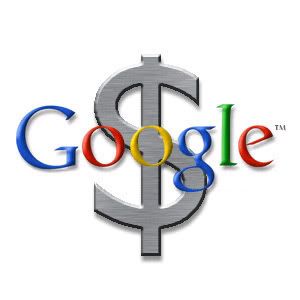
Put simply, Google AdWords is a way of advertising on the internet to get people to come and look at what you are trying to sell or even just to promote the information you have on your website. It is a form of pay per click (PPC) advertising. A lot of people use Google AdWords campaigns in their affiliate marketing or internet marketing campaigns as part of a wider marketing strategy.
The basics are that you set up an ad with Google and you pay whenever anyone clicks on that ad. The amount you pay depends on how much you have bid for each keyword that you nominate as relevant to your ad. You only pay when your advert is clicked on. The ads are either shown in the Google search engine or as contextual ads within websites that have subscribed to Google AdSense.
Put simply, the more you pay them for a particular keyword phrase, the higher up in the listing your ad gets every time someone searches. Of course there is more to it than that but here we are going to get into the basics and the key facts about Google AdWords.
Google AdWords Interface
So, once you have created a Google AdWords account, there are four main areas you need to focus on: Campaigns, Ad Groups, Ads and Keywords. Each one of these sits inside the other with the Campaigns being at the top of the tree.
Campaigns
Within campaigns you can have a number of ads all pointing to different places with possibly nothing to do with each other. Campaigns are there to group these ads within a certain set of restrictions. For example you may have a group of ads that you want to target to a certain location with a target language. Campaigns is also where you set your budget for all of the ads under that campaign. So, for example, if you have a group of ads that you don't want to spend more than $20 a day on for them all and you want them all to be aimed at North America but at English or Spanish speakers, then you could keep them all under one campaign.
Ad Groups and Ads
Under the Ad Groups section you can have as many ads as you like but all of these ads must be pointing to the same website. So, each Ad Group is for a particular website you are promoting. In internet marketing it is a good idea to create a few different ads for each website so that you can see which ads are doing best at getting your target market to visit. Keep trying new ideas with ads until you come up with the right formula.
Keywords
These really are the crux of the whole matter. A keyword is basically the word or phrase that you want someone to type in to the search engine and for your ad to appear. Now much more popular words or phrases will involve a much larger cost for you to get near the top of the search results. So you need to decide how much you are willing to spend on your marketing campaign to get near the top. If you are on a tight budget then you need to come up with some less common words or phrases (but obviously ones that people will still search for) that you will not need to pay so much for to appear near the top of the search results. For example "depression" would need a much higher bid to get on the top of the search results than "how to treat mild depression". So keep this kind of thing in mind when looking for keywords that match your site.
Make sure you choose a large number of keywords that relate to your site and your advert so that you can see which keywords perform best and which ones may not be relevant - i.e. they may have a large number of impressions but no clicks. You should start by trying to find around 300-500 keywords for your campaign and keep monitoring them to see what is working.
Cost
You need to monitor the cost of each click, the level of sales from each 100 clicks and compare these figures to the profit that you make on each sale. For example if you make a sale once in about every 100 clicks then you need to ensure that your profit on the product you are selling is less than 100 times the cost of the click. So if you are bidding $1 on a keyword and your profit on each sale is $50 then the PPC campaign is costing you twice as much as your profit ($100 for 100 clicks = 1 sale) so you need to make sure that your keywords are relevant, the CPC (cost per click) is lower, perhaps by choosing longer keywords, or that you make more sales!
Summary
So, in summary, to set up your internet marketing with Google AdWords, first, split up your campaigns according to where you want the ads to appear, in what language and your budget for that group of ads. Then create Ad groups for each website you wish to promote. Create a few ads for each site to see which works best in your market. Add relevant keywords to your ads (note that the keywords must be relevant or your ads will not show) and set your budget for your keywords.
| To get more information on affiliate and internet marketing check out my affiliate marketing website or my affiliate marketing blog. | |

No comments:
Post a Comment